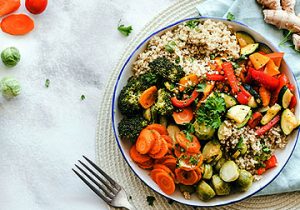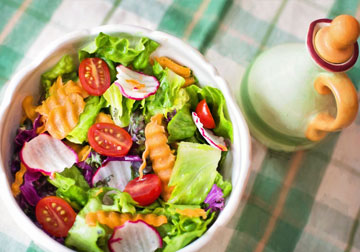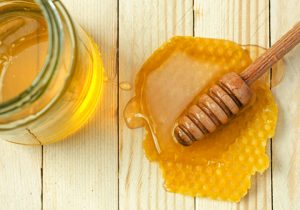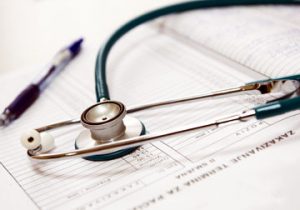Healthy Diet
Benefits of Healthy diet on body
A healthy diet is a diet that provides all the necessary nutrients our body needs to work effectively. Eating a balanced diet helps people maintain good health and reduce the risk of disease.

A healthy diet should have the required calories to do our daily activities. It should look good, smell good, taste good, and should have the right balance of five food groups – fruits, vegetables, proteins, fats, and grains. It is the right combination of these five food groups on your plate which will make you feel great, provides the right amount of energy, and uplifts your mood.
A healthy diet is not about restricting yourself of the foods you love rather it is about understanding the simple fact to eat real whole unprocessed food as close to their natural state as possible or in simpler terms to replace processed food with natural food as much as possible.
Our diet reflects our body fitness
 A healthy and balanced diet is important to keep the body fit. Your fitness level majorly depends on the food you eat. We all need the right balance of protein, fat, carbohydrates, fiber, vitamins, and minerals in our diets to sustain a healthy body.
A healthy and balanced diet is important to keep the body fit. Your fitness level majorly depends on the food you eat. We all need the right balance of protein, fat, carbohydrates, fiber, vitamins, and minerals in our diets to sustain a healthy body.
A healthy diet not only makes you feel better but also makes you look better. If supplemented by right and regular exercise regime the results manifold.
Let’s understand how the food we eat gets converted to the energy required by the body. Whenever we eat anything, we chew it in our mouth to break it into small pieces, which then goes to our stomach where acid reactions take place.. It is then transferred to the intestine where enzymes are released that break this into small building blocks. These building blocks are the nutrients and vitamins which are required by our body to stay alive. These building blocks are then supplied to the areas of the body where they are required.
Five Food Groups:
Vegetables – It is recommended to eat more vegetables than any other food group. Vegetables should cover more than half of what your plate has. Broadly vegetables are further categorized into five subgroups – leafy greens, red or orange vegetables, starchy vegetables, beans and peas (legumes), and other vegetables, such as eggplant or zucchini. It is important to have a variety of vegetables you eat every day. You should try different vegetables available around. It is best to choose what is locally available and fresh.
Fruits – A healthy diet should cover plenty of fruits you consume daily. It is good to have whole fruits that fresh and locally available in the market, it works the best.
Grains – Grains are further divided into two subgroups whole grains and refined grains. Whole grains are good for health as it contains more fiber and protein than refined grains. The body takes more time to break down whole grains, so they have less effect on a person’s blood sugar. On the other hand, refined grains have less protein and fiber, and they can cause blood sugar spikes.
Proteins – Proteins are bodybuilding foods. It is important to have the right amount of protein in your diet on a daily basis. Eggs, meat, fish, nuts, beans, peas, legumes, and milk are rich sources of proteins.
Fats – Fats provide energy, store vitamins, and synthesize hormones. Broadly fats are categorized into two good fats and bad fats. Monounsaturated fats and polyunsaturated fats are known as “good fats” because they are good for your heart, your cholesterol, and your overall health. In fact, healthy fats—such as omega-3s—are vital to your physical and emotional health.
Monounsaturated fat – good sources include Olive, canola, peanut, and sesame oils, Avocados, Nuts (almonds, peanuts, macadamia, hazelnuts, pecans, cashews), Peanut butter.
Polyunsaturated fat – good sources include: Sunflower, sesame, and pumpkin seeds, Flaxseed, Walnuts, Fatty fish (salmon, tuna, mackerel, herring, trout, sardines) and fish oil, Soybean and safflower oil, Soymilk, Tofu.
Trans fat – This is the worst type of fat since it not only raises bad LDL cholesterol but also lowers good HDL levels. Trans fat – primary sources include: Commercially-baked pastries, cookies, doughnuts, muffins, cakes, pizza dough, Packaged snack foods (crackers, microwave popcorn, chips), Stick margarine, vegetable shortening, Fried foods (French fries, fried chicken, chicken nuggets, breaded fish), Anything containing hydrogenated or partially hydrogenated vegetable oil, even if it claims to be “trans fat-free”.
When you eat a meal or a snack, it is important to know what is unhealthy for you – Try to avoid things that are very high calorie, have a lot of simple sugars, and lot of salt. Your body will eventually reflect what you are eating.
Unhealthy food, especially junk will put you at the risk of various diseases like diabetes, overweight, etc. On the other hand, if you are having a good nutritious diet with the right balance of all five major food groups, you will have more energy, you will feel better about yourself, you will be in a better mood and you will look good.
Another important aspect of a healthy diet is to know the right quantity of food that you are eating. Overeating will make the complete process futile. It is a good idea to have a small portion of food on your plate, chew it properly, and then go for the second serving. It is also important to give time to the food that you are eating. Instead of just gulping it down, enjoy your food, and feel the benefits it will have on your body.
It is never late to shift to the right eating pattern. Eventually, you will end up getting a good habit which will have long term benefits. There are chances that your children and other family members also start following good eating habits and you will live a better, healthier life.
Shop products related to healthy food online that are best for your health.




